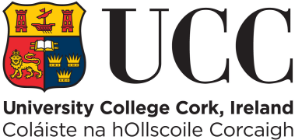The 12th biennal collective intentionality conference — july 13–25, 2020
What do the Innocent Beneficiaries of Wrongdoing Owe?
Collectively committed wrongs often yield benefits which sometimes accrue not only to the wrongdoer but to people who are innocent of the wrong in question; they neither sought out the benefits nor were intended to benefit. Some have argued that innocently benefiting from such wrongs can ground a directed duty to address those harms, especially when it is impossible to compel compensation from the wrongdoers. This has come to be known as the ‘Beneficiary Pays Principle’ (BPP). The intuition is that the benefits resulting from a wrong are ‘tainted’ in a way that inculpates beneficiaries in the wrongdoing if they do not divest themselves of the benefit in a way remedying the collective wrong from which the benefit arose. I will attempt to ground this intuition. In doing so, I will argue that benefiting as such grounds a duty.
Discussion
4 thoughts on “What do the Innocent Beneficiaries of Wrongdoing Owe?”
Leave a Reply
You must be logged in to post a comment.
Only ISOS members (with valid fee) can access to the discussion section. Visit ISOS website to subscribe.


Hi Saba,
That was a great talk. Just a quick question about the Beneficiary Pays Principle. You put it in terms of a directed duty that the beneficiary has to compensate the wrongdoer. How crucial is it that the duty be directed to the victim? Why can’t it simply be a duty to pay the victim? I suppose that there might be general reasons one might have for positing directed duties – e.g. considerations related to the idea of wronging – though I’m not yet quite convinced by this. In any case, the beneficiary doesn’t wrong anyone in the cases relevant for BPP.
One thought here is that the beneficiary has no duty whatsoever to pay. But we can set that aside if we have something like the intuition underlying BPP. But do we have to say that receiving the benefit automatically generates a directed duty to pay the victim? Why not think that the benefit triggers the preexisting monadic duty to pay victims when one has benefited from their being wronged?
Hope all is well! –Abe
Hi Abe!
I’m alive. Hope you’re well. And sorry, I didn’t see this.
So, all I meant by my claim that the beneficiary has a *directed* duty toward the victim is that the beneficiary has a duty toward *that* victim as opposed to some other victim from whom someone else benefitted. You mention that there might be a preexisting monadic duty to pay victims when one has benefited from their being wronged. But the duty has to be a duty to pay not just *any* victim of a wrong, but rather those *specific* victims whose setback benefitted *you*. If this is what you mean by a ‘monadic’ duty, then it seems you’ve built directedness into that duty in question! Does that sound right?
I should have written that the wrongdoer has a monadic obligation to pay not just any victim, but the specific victim – those that were harmed by his actions. Likewise, the beneficiary has a monadic obligation to pay the specific victim of the wrongdoing from which he benefited. I’m not necessarily supporting this view. I’m just wondering what work the directionality in obligation is doing. It might be that we cannot make any sense of the notion of compensation here without invoking directionality in duty. I guess I’m a little leery of the idea that one incurs directed duty simply by wronging another (and simply by benefiting from the wronging someone else has committed). The directed duties are there before the wronging – as in the case of contracts. Torts are different and more problematic. They call for a different treatment.
Fascinating talk, Saba. We often see the BPP introduced in discussions of historical/structural injustice (reparations for slavery, gender privilege, climate change, etc), and I’m interested to hear more about how the cases you develop bear on those issues.